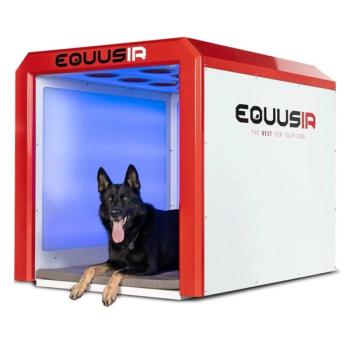
Q&A with Melissa Evans, CVT, LVT, VTS (ECC): From theater to the ICU—and vet tech insights
Evans reflects on her unexpected path to veterinary medicine, what she wishes other team members knew about technicians, and her advice for aspiring vet techs.
Melissa Evans, CVT, LVT, VTS (ECC), a RECOVER CPR–certified instructor, has built her career across emergency, critical care, and intensive care unit (ICU). She has worked in specialty hospitals in New Jersey and New York and has experience volunteering at animal shelters and with a wildlife rehabilitator. Now, Evans works as a relief technician for specialty hospitals throughout New York, New York.
Currently, she is editing a book for veterinary technicians, expected to be published in 2026, on monitoring critical patients using the Rule of 20. The book brings together contributions from experienced technicians, including several with veterinary technician specialist credentials, who have dedicated much of their careers to caring for critical patients.
dvm360: Can you tell me a bit about your background and how you got into veterinary medicine?
Evans: My story is a little odd. I have a degree in musical theater, so I live in New York, [New York], and I was pounding the pavement. I wanted to be on Broadway, and it's so hard, so I was getting very frustrated. I was working a 9 [AM] to 5 [PM] in an office, and my husband was noticing how unhappy I was. He said, “Look, if you are done with theater, if this isn't what you want to do with your life, why don't you go and find something that you want to do?”
At the time, I was volunteering at a local animal shelter, and I really loved it. I really loved being hands-on with the animals, so I looked into being a veterinarian, and I thought to myself, "This is a lot of school, and I do not want to do this." It's a lot of work that I totally respect, but [it] is not for me.
I spoke with a friend whose husband was a veterinarian. She said, “You know, he doesn't actually do a whole lot of hands-on stuff with the animals.” And then I was at the vet with my cat, and we started talking. I told her I was thinking about going into veterinary medicine, and she told me all about being a veterinary technician. I was like, "This is it. This is what I want to do." And that's how I became a technician.
dvm360: What’s one part of your job that you wish other members of the veterinary team understood about what veterinary technicians do?
Evans: I think [that], more now than when I first started as a technician, people understand—especially if they're in the veterinary field—what technicians do, but I don't think they always realize that technicians are really hungry to learn. As a technician, because we are so one-on-one and hands-on with patients, we constantly want to know more. I'm speaking generally—I'm sure there are people who don't—but I think most of the people I meet want to learn about whatever condition is affecting their patient, how they can be more effective, [and] how to [better] help their patient.
I've seen it time and again, people asking questions and learning. So I just really hope that people understand that when we're asking questions, it's because we want to do the best we possibly can for our patients, to be as helpful as we possibly can to our coworkers, and that it should be something to be encouraged....
dvm360: What would you say to someone considering becoming a veterinary technician?
Evans: I would say to find a place in veterinary medicine that you love and stick with it. I have worked in all sorts of facets and different hospitals, and emergency and critical care is absolutely the love of my life. But I do not love [general practice (GP)]. I am not that person.
I think you need to try a few things and find the one that really sticks with you, and do that. You don't have to be the best GP technician if you don't want to do GP. You don't have to be the best [neurology] technician if you don't want to do [neurology], but be the best at whatever you decide to be.
dvm360: If you could go back, what advice would you give yourself on your first day as a veterinary technician?
Evans: I would tell myself that I don't have to get everything right all the time—that it's OK to not know and to ask questions, and to not be scared to do that.
Newsletter
From exam room tips to practice management insights, get trusted veterinary news delivered straight to your inbox—subscribe to dvm360.





